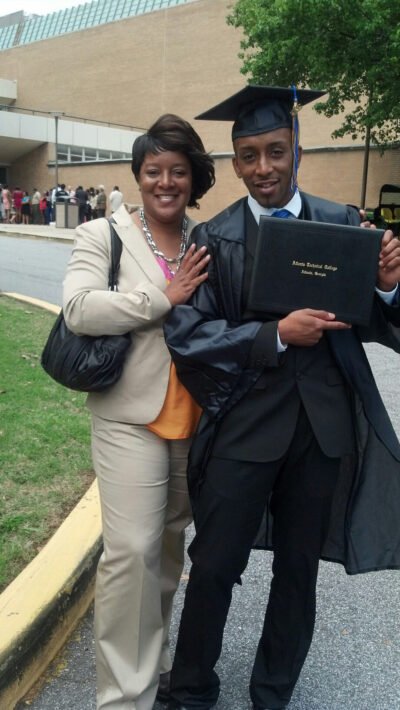In 2019, two NYPD officers murdered Kawaski Trawick, a 32 year old Black man who struggled with mental illness and addiction. Trawick was in his own apartment, he was not violent, and the police killed him 112 seconds after they broke in.
https://www.propublica.org/article/it-wasnt-the-first-time-the-nypd-killed-someone-in-crisis-for-kawaski-trawick-it-only-took-112-seconds
1/
https://www.propublica.org/article/it-wasnt-the-first-time-the-nypd-killed-someone-in-crisis-for-kawaski-trawick-it-only-took-112-seconds
1/
The story of Trawick's murder is a near-perfect microcosm of the NYPD's many sins and defects.
* One of the officers who entered Trawick's apartment had "forgotten" his bodycam
2/
* One of the officers who entered Trawick's apartment had "forgotten" his bodycam
2/
* The officers violated every NYPD policy: entering without knocking, escalating rather than de-escalating, using a taser, shooting
* The NYPD refuses to release unredacted bodycam footage, citing Trawick's privacy, but Trawick's family wants the footage released
3/
* The NYPD refuses to release unredacted bodycam footage, citing Trawick's privacy, but Trawick's family wants the footage released
3/
* The inexperienced white cop who tased and then murdered Trawick did so in spite of repeated admonishments from his more experienced Black partner to stand down
* The officers disregarded their dispatcher's notifications that Trawick had struggled with mental illness
4/
* The officers disregarded their dispatcher's notifications that Trawick had struggled with mental illness
4/
* The officers are still serving, and the Bronx prosecutor has declared that there is no basis for criminal charges against them
* NYPD implies that the officers haven't been interviewed about the killing; this is offered as pretense for not releasing bodycam footage
5/
* NYPD implies that the officers haven't been interviewed about the killing; this is offered as pretense for not releasing bodycam footage
5/
* The NYPD has decades of history of murdering mentally ill Black people in their own homes, it claims to have addressed this through additional training
* But the training is of low quality, poorly administered, with few records kept and little followup
6/
* But the training is of low quality, poorly administered, with few records kept and little followup
6/
* The vast majority of NYPD officers have not received the training
* However, the officers who murdered Trawick - Herbert Davis and Brendan Thompson - DID receive the training and it didn't help (Davis completed his training 3 days before he murdered Trawick)
7/
* However, the officers who murdered Trawick - Herbert Davis and Brendan Thompson - DID receive the training and it didn't help (Davis completed his training 3 days before he murdered Trawick)
7/
The animating principle of #AbolishThePolice is that police murder and racism are systemic problems, not individual ones. The problem isn't that bad people become cops, or being a cop is corrupting. The problem is the institution itself, the very model of policing.
8/
8/
Institutional problems have institutional causes and need systemic solutions, and the danger of focusing on individuals - victims and perpetrators - is that it can pull focus away from the institutional nature of the problems.
9/
9/
But @ericuman's incredible, lengthy expose on Trawick's murder for @propublica is a masterclass in how to use individual stories to illuminate, rather than sideline, the systemic nature of the problem.
10/
10/
Umansky humanizes Trawick, bringing him to life for us: a lively, driven, talented ambitious dancer and athlete who burned to run his own dance studio and taught with grace and patience.
11/
11/
Trawick's struggles are likewise illuminated with empathy, illustrated by the people who loved him and lived with him, telling a tale that too many of us know: the story of a brilliant friend or relative whom we fear for and want to help.
12/
12/
And then Umansky uses this sharp-focused person as a spotlight to show how the system failed at every single level, before, during and after the crisis. How the system's self-protective urge means it can NEVER be improved.
13/
13/
How other places have done better, which means that New York could too - which means that New York's situation isn't an inevitability, it's a choice.
Trawick's murder is a stain, but it is grotesquely unexceptional. It is part of a pattern, a string of similar murders.
14/
Trawick's murder is a stain, but it is grotesquely unexceptional. It is part of a pattern, a string of similar murders.
14/
Umansky's piece puts this tragedy in its proper context: not as an accident of history, but as the inevitable, ongoing outcome of a broken system that New York City's authorities choose ever day not to address.
eof/
eof/

 Read on Twitter
Read on Twitter


